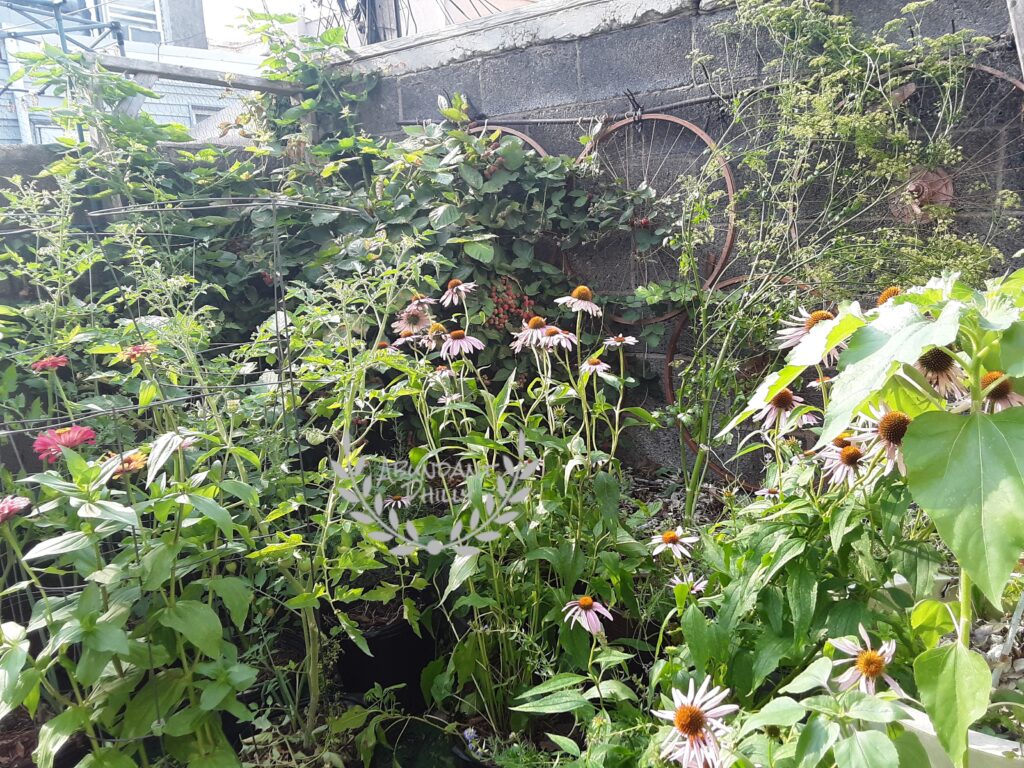I’m obsessed with having worms make my compost. This vermicompost or “worm castings” is the secret weapon to my successful garden – acting as my primary mulch in the cooler seasons, a key ingredient for my potting & seed-starter mixes, a liquid fertilizer for indoor plants, a nutrient to protect against shock while transplanting, and a raised bed soil conditioner in between plantings. If you’re not making use of worm compost now, put it on your list of must-haves for the garden next season.
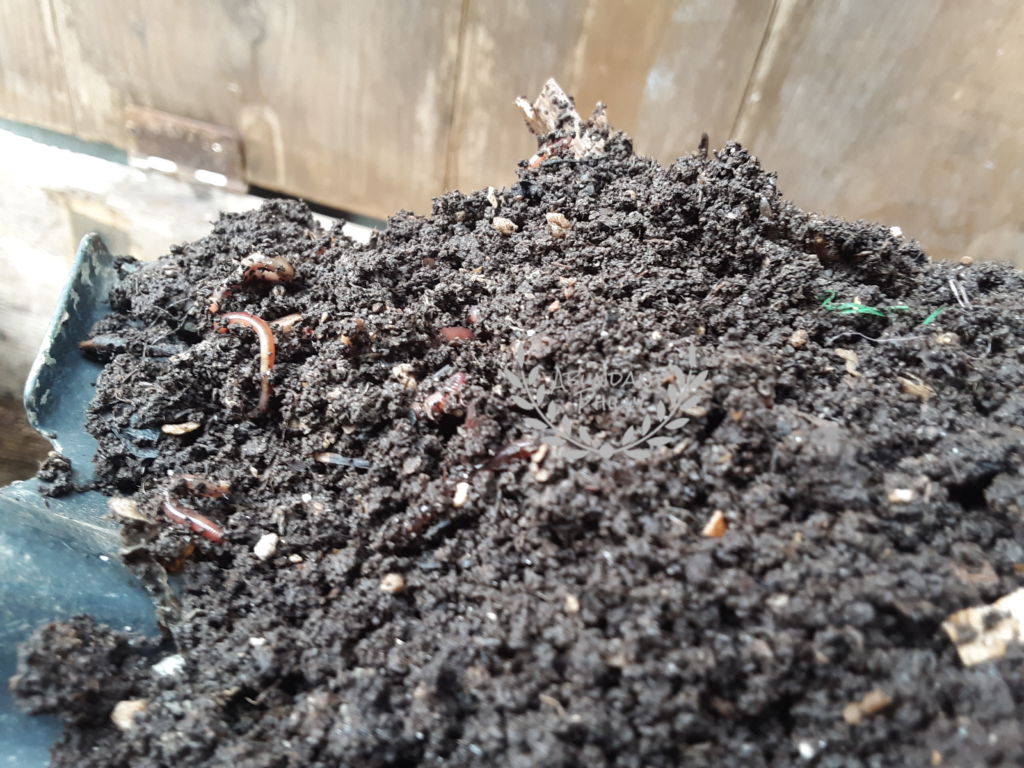
Let’s Break it Down
What it means to grow organic when you’re an amateur gardener can be a moving target. Some of us will use pesticides or fungicides in the garden, so long as their origins are organic. Some will deploy fertilizer treatments. And some others will insist on no outside treatments in the organic garden.
But if there is one thing that seems to unite most of us organic growers, it’s the use (or preference to use) compost for our spaces.
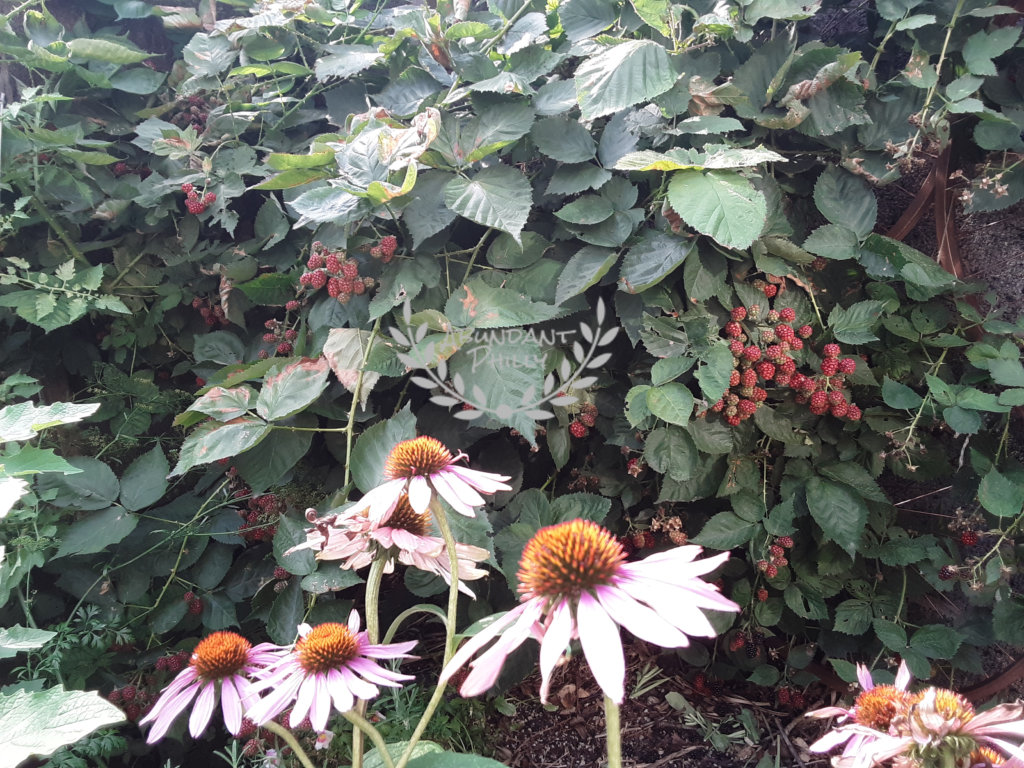
Compost is the result of decaying organic matter being converted into a form that benefits plant and soil life. It nourishes plants & microorganisms through the nutrients it contains, and conditions the soil over time. With regular applications, the soil becomes a medium where most food plants can thrive with little gardener intervention.
I don’t get into the various methods of composting here in this post. Instead, I want to highlight the practice of composting food scraps & other household waste materials that has worked the best for me in Philadelphia – composting using worms!
What is Worm Composting?
Certain species of worm process decaying food waste and other organic matter with great efficiency, producing an odor-less byproduct called worm compost (aka “vermicompost”) for the home gardener to use. This process can be captured using a simple bucket/bin system in your kitchen, basement or even living room (which is where I’ve had mine for the past year); or, for greater capacity, it came be done outside using fabricated and/or recycled materials to build the worms’ housing.
Worms will consume the decayed material provided to them to produce vermicompost – a material so beneficial to plant life & soil health it is often referred to as GARDEN GOLD.
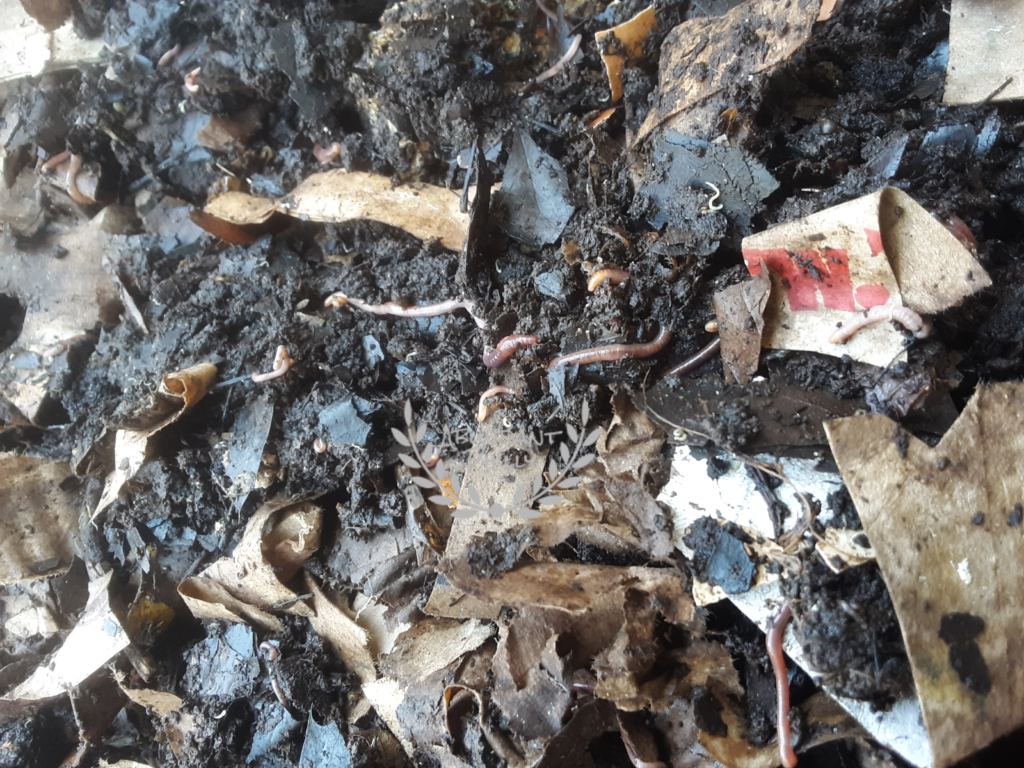
Red wigglers are my composting worm of choice. They naturally like to live in the top layer of the soil in forest systems, where they will enjoy eating the decaying leaves and other matter on the floor (including animal carcasses – more on that in a second.)
Why Worm Composting is the Best Option for Urban Gardeners
Out of all the “managed” ways to create compost, I choose vermicomposting because it has such a wide range of benefits to my garden, and practical applications for me as an organic grower living in a city like Philadelphia.
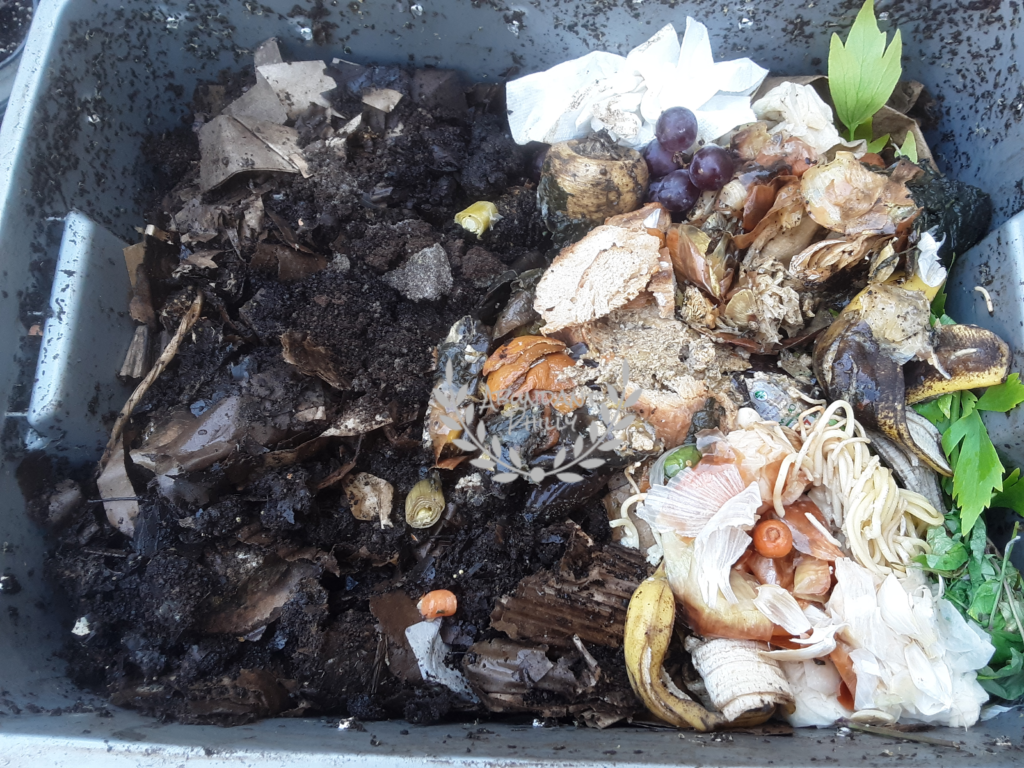
First and foremost, it is the dominate way that I can make use of my food scraps in a way that is low-cost (to me and the environment), efficient and safe for my home garden. Living in the city, I’m often dealing with an environment that is not ideal for more conventional composting methods:
- Living closely to others. The smells (however temporary) of a conventionally mixed or layered compost pile would NOT endear me to the half-dozen neighbors all around my back patio. Balanced worm composting systems do not smell.
- Rodent pests. Philadelphia row homes are the dominant housing type in the city, and purposefully built close together. While that may help with the structural integrity of a house, it also exacerbates the tendency for rodents – and other pests – to be a permanent fixture in the neighborhood. Let’s not further entice them with food scraps regularly thrown in an open heap!
- Limited outdoor space. Especially where I’ve been living in South Philadelphia, during the summer months I share my 15 ft x 12 ft patio with two dozen potted plants, my outdoor seating, a grill and a narrow raised bed made out of cinder blocks. There simply is no space to build up a conventional 3ft x 3ft pile of organic waste, much less turn it for fast production of compost. It also would make less-than-ideal views from my kitchen window!
- Small variety of inputs. The main material at my disposal for composting is food scraps, followed by (uncoated) paper products. I don’t own farm animals – so their bedding and waste are not an option for my composting. I also do not have a lawn or live in a neighborhood where large deciduous trees rain down their leaves in folks’ front/backyards. Racking leaves from the street trees not only picks up other non-organic trash, it could also threaten my health if I were to be stuck by a discarded hypodermic needle (unfortunately this is an all-too-common hazard during block clean ups in Philly.)
That said, my 3 ft x 6 ft outdoor worm bin (post on my dad and I built that one coming soon!) was large enough to recycle my garden waste & spent plants each Fall and take my kitchen scraps; so, the garden woke up in the Spring with those nutrients being recycled right back into the soil.
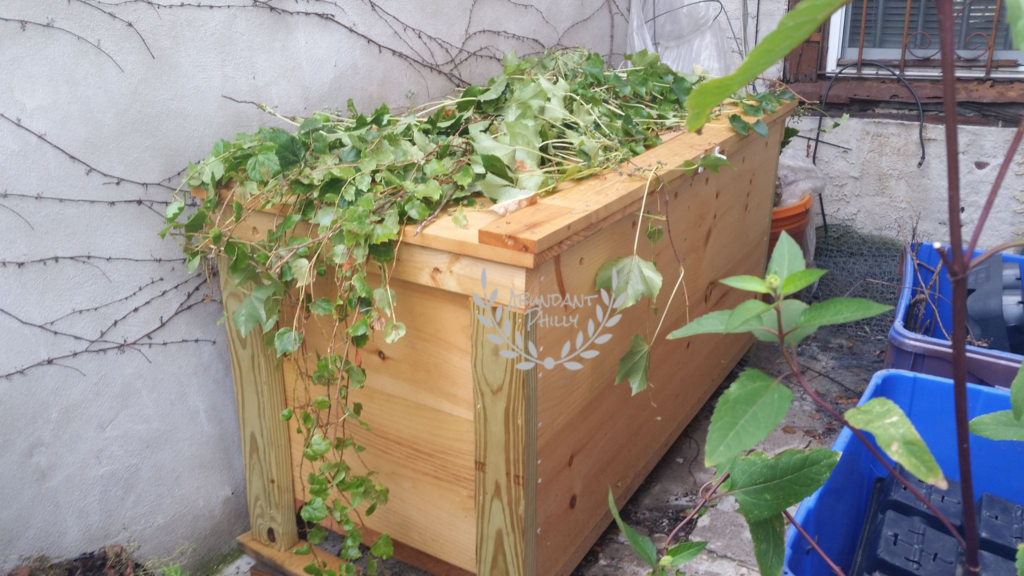
Get your Worms
You can start worm composting now! My approach to starting a bin, indoors or out, will come in future post. For now, I’d recommend that beginners experiment first with an indoor system. These are simplest to control, easiest to observe/experiment and will allow you to start out slow.
The most immediate way to get worms is to ask around to see if someone near you is already doing it – worms can naturally control their population in a bin through their reproductive cycles, so a friend should almost always have some to spare.
That said, you may be trailblazing as the first/only soon-to-be worm composter in your circle. Six years ago, I purchased my red wigglers online – the smallest batch of 250 that I could get – and I haven’t needed another order since. Uncle Jim’s Worm Farm ships worms all over and is based in Pennsylvania.
Note too that most store-bought or commercial worm compost (often labeled “castings”) is treated ahead of sale so you’re unlikely to find extra worms or worm eggs in those bags. Purchased worm castings can work in a pinch though if you haven’t yet started producing your own and want the benefits of worm compost immediately! Check with your local garden centers for the best buys.
Stay growing,
Key
